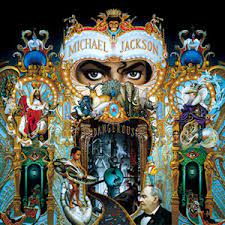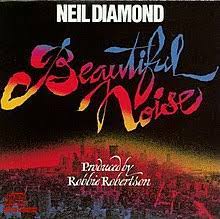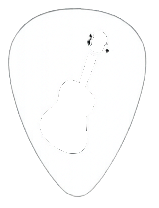- Home
- Mtown Pop Blues
- Eric Clapton Album Covers
Best Eric Clapton Songs
On The Acoustic Guitar
Welcome to my Eric Clapton guitar lessons page. Here you'll find a collection of his best acoustic blues, rock standards, and ballads. I'll be creating an overview covers, zip file lessons with demos, free chord sheets, and rhythm tips to help you play these classics just like 'Slowhand'.
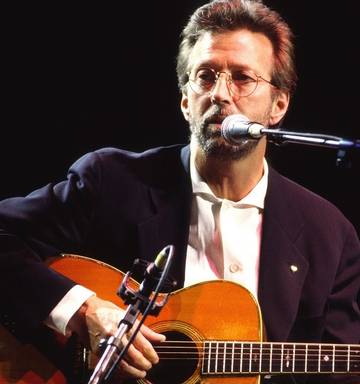
The "Unplugged" Era & Acoustic Classics
AlbertaLayla (Unplugged)
Malted Milk
Running On Faith
San Francisco Bay Blues
Tears In Heaven
70s Rock, Pop & Ballads
Bell Bottom BluesCocaine
Easy Now
I Shot The Sheriff
I've Got A Rock N Roll Heart
Lay Down Sally
Let It Rain
Promises
Thorn Tree In The Garden
Watch Out For Lucy
Wonderful Tonight
Blues Roots & Standards
Before You Accuse MeFurther On Up The Road
How Deep Is The Ocean
I Can't Stand It
Kindhearted Woman Blues
My Fathers Eyes
Ramblin On My Mind
Rockin' Chair
They're Red Hot
The "Unplugged" Era & Acoustic Classics
Alberta - Learn To Play On Guitar
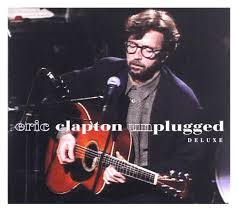
Alberta is a traditional blues standard famously associated with Lead Belly, which Eric Clapton revitalized for his 1992 Unplugged album. Clapton’s rendition is a lively, upbeat shuffle featuring a driving 12-string guitar rhythm that gives the track a full, vibrant sound.
Although officially titled "Alberta," Clapton’s arrangement is musically based on the similar folk-blues song "Corrine, Corrina." The infectious tempo and catchy melody make it one of the most spirited performances from the Unplugged session, showcasing Clapton's ability to transform a simple folk tune into a rousing acoustic rocker.
Chords And Strumming
This one is played in standard tuning with a root up down up and repeat pattern. I do have have some lead in this one while playing the chords C, C7, F, Fm and a G.
Guitar Lesson Details - (chords & lyrics sheet incl with lesson)
Jump To Top
Layla - Learn To Play On Guitar
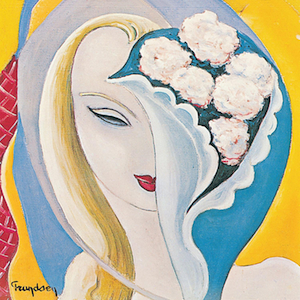
Layla was co-written by Eric Clapton and Jim Gordon back in 1970 while Clapton was still a part of Derek And The Dominos. The song also has some roots to the fact that Clapton had a desire for Patti Boyd, who was George Harrison's girl at the time.
The original version of this song was in 1972 but the Unplugged version in 2004 was the most successful winning a Grammy that year for the best rock song.
The song also made it into the Grammy Hall Of Fame in 1998.
Chords And Strumming
Soon.
Guitar Lesson Details - (chords & lyrics sheet incl with lesson)
Jump To Top
Malted Milk - Learn To Play On Guitar
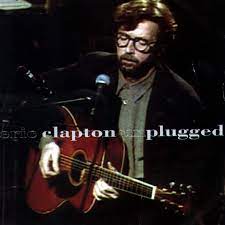
Malted Milk is a Robert Johnson blues classic from 1937, reimagined by Eric Clapton for his 1992 Grammy-winning album, Unplugged. Clapton’s rendition features a stripped-down, intimate arrangement highlighted by his impressive acoustic slide guitar work.
The lyrics depict a man struggling with lost love, drinking malted milk in a desperate attempt to "drive my blues away." With its melancholy vibe and emotive vocals, Clapton’s version honors the original while showcasing his deep connection to the blues.
It remains a standout track that perfectly captures the raw, acoustic spirit of the Unplugged session.
- Album: Unplugged
- Year: 1992
- Trivia: A Robert Johnson cover; Clapton admits on the album that he was nervous to play it.
Chords And Strumming
Soon.
Guitar Lesson Details - (chords & lyrics sheet incl with lesson)
Jump To Top
Running On Faith - Learn To Play On Guitar
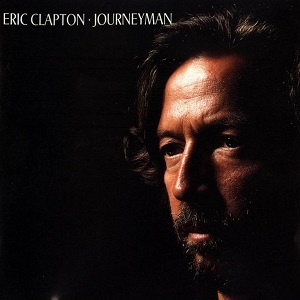
Running On Faith was written by Jerry Lynn Williams and first appeared on Clapton’s 1989 album Journeyman. However, the song found a second life with a celebrated acoustic version on the 1992 Unplugged album.
This gospel-tinged ballad features soulful vocals and magnificent slide guitar work, often played on a Dobro in acoustic performances. The lyrics speak of reliance on love and faith to navigate life's struggles.
The stripped-back Unplugged rendition highlights the song’s spiritual undertones and remains a favorite among guitarists for its smooth, melodic slide phrasing.
Chords And Strumming
Soon.
Guitar Lesson Details - (chords & lyrics sheet incl with lesson)
Jump To Top
San Francisco Bay Blues - Learn To Play On Guitar

San Francisco Bay Blues was recorded by Jessie Fuller back in 1954 and over the years has been recorded by nearly 100 artists including Eric Clapton, Tom Rush, The Rooftop Singers and many others, and in many languages.
Eric Clapton's version of "San Francisco Bay Blues" appeared on his 1992 live album "Unplugged," which was a highly successful acoustic performance.
His rendition of the song helped introduce it to a new audience and remains one of the more popular versions of the track. Clapton's performance on "Unplugged" contributed to the song's enduring popularity.
- Album: Unplugged
- Year: 1992
- Trivia: A one-man-band classic by Jesse Fuller; Clapton's version features kazoos and a jug-band feel.
Chords And Strumming
Soon.
Guitar Lesson Details - (chords & lyrics sheet incl with lesson)
Jump To Top
Tears In Heaven - Learn To Play On Guitar
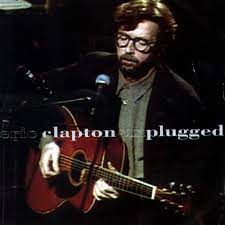
Tears In Heaven is arguably Eric Clapton’s most emotional work, written following the tragic death of his four-year-old son, Conor.
Featured on the Rush soundtrack and the 1992 Unplugged album, the song won three Grammy Awards, including Song of the Year. Played on a nylon-string Spanish guitar, the track features a distinctive, melodic fingerpicking pattern. Its heartbreaking lyrics ask if he would be recognized in the afterlife.
The song marked a turning point in Clapton’s career, showcasing deep vulnerability and proving the healing power of music.
Chords And Strumming
Soon.
Guitar Lesson Details - (chords & lyrics sheet incl with lesson)
SoonJump To Top
70s Rock, Pop & Ballads
Bell Bottom Blues - Learn To Play On Guitar

Bell Bottom Blues is a soulful masterpiece from the 1971 Derek and the Dominos album, Layla and Other Assorted Love Songs. The song was inspired by Pattie Boyd—then married to George Harrison—who asked Clapton to bring her a pair of bell-bottom jeans from America.
Clapton transformed this simple request into a metaphor for heartache, singing of a heart "hanging upside down." Characterized by its slow tempo, melancholic melody, and passionate vocals, the track captures the raw pain of unrequited love.
It remains one of Clapton’s most beloved songs and a consistent highlight of his live performances, celebrated for its emotional intensity and guitar mastery.
- Album: Layla and Other Assorted Love Songs
- Year: 1971
- Trivia: Written for Pattie Boyd after she asked Clapton to bring her back a pair of bell-bottom jeans from the US.
Chords And Strumming
Soon.
Guitar Lesson Details - (chords & lyrics sheet incl with lesson)
Jump To Top
Cocaine - Learn To Play On Guitar
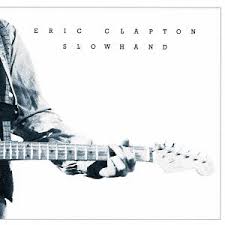
Cocaine ... info soon.
Chords And Strumming
Soon.
Guitar Lesson Details - (chords & lyrics sheet incl with lesson)
SoonJump To Top
Easy Now - Learn To Play On Guitar
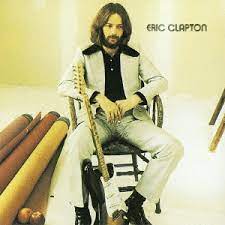
Easy Now is a poignant acoustic ballad from Eric Clapton’s 1970 self-titled debut solo album. Characterized by a laid-back tempo and minimalistic guitar work, this slow blues number features some of Clapton's most heartfelt vocals. Lyrically, the song serves as a personal plea for self-care during his battles with addiction, urging himself to not push too hard.
While never released as a standalone A-side, it achieved chart success as the B-side to both "After Midnight" and "Let It Rain."
Its simple, introspective arrangement has made it a lasting fan favorite and a testament to Clapton’s vulnerability as a songwriter.
- Album: Eric Clapton
- Year: 1970
- Trivia: A rare acoustic ballad from his debut solo album; often overshadowed by "After Midnight."
Chords And Strumming
Soon.
Guitar Lesson Details - (chords & lyrics sheet incl with lesson)
Jump To Top
I Shot The Sheriff - Learn To Play On Guitar
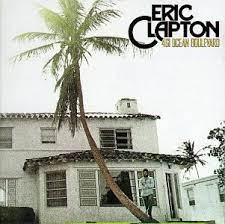
I Shot the Sheriff is a 1973 Bob Marley anthem that achieved massive mainstream success through Eric Clapton’s 1974 cover. Recorded for his album 461 Ocean Boulevard, the track marked a significant stylistic shift, blending Clapton’s trademark blues guitar with laid-back reggae rhythms.
This unique fusion propelled the song to the Top 10 on the Billboard Hot 100 and earned Clapton his first #1 hit. Lyrically, the song narrates a tale of self-defense against authority, resonating with themes of social justice. Clapton’s version remains a definitive crossover classic, bridging the gap between rock and reggae history.
Chords And Strumming
Soon.
Guitar Lesson Details - (chords & lyrics sheet incl with lesson)
Jump To Top
I've Got A Rock And Roll Heart - Learn To Play On Guitar
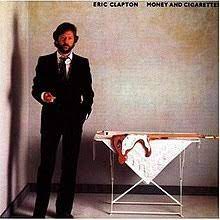
I've Got a Rock 'n' Roll Heart was recorded by Eric Clapton for his 1983 album "Money and Cigarettes." The track was written by Troy Seals, Eddie Setser, and Steve Diamond and features a catchy, upbeat melody and a classic rock 'n' roll vibe.
The song was released as a single in 1983 and became a hit in the US, reaching the top 20 on the Billboard Hot 100 chart. "I've Got a Rock 'n' Roll Heart" features Clapton's signature guitar playing, with a prominent guitar riff throughout the song and a brief but impressive guitar solo.
This song is a classic example of Eric Clapton's ability to craft memorable, feel-good rock songs. The track remains a favorite of Clapton fans and is often included in his live shows.
- Album: Money and Cigarettes
- Year: 1983
- Chart: #18 (Hot 100).
- Trivia: A catchy country-rock tune that celebrates the simple joy of music over fame.
Chords And Strumming
Soon.
Guitar Lesson Details - (chords & lyrics sheet incl with lesson)
Jump To Top Of Eric Clapton Album Covers
Lay Down Sally - Learn To Play On Guitar
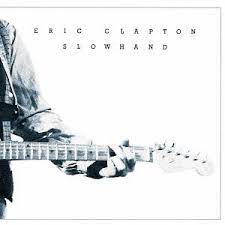
Lay Down Sally features a memorable guitar riff and solo from Clapton, as well as a catchy chorus and a prominent backing vocal from Marcy Levy.
The track's lyrics tell the story of a woman who is hesitant to commit to a relationship, with Clapton urging her to "lay down Sally, and rest you in my arms." The song's upbeat, relaxed feel and country influences set
it apart from some of Clapton's more blues and rock-oriented work.
Chords And Strumming
Soon.
Guitar Lesson Details - (chords & lyrics sheet incl with lesson)
Jump To Top
Let It Rain - Learn To Play On Guitar
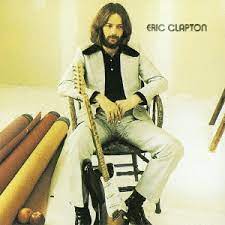
Let It Rain is a standout track from Eric Clapton’s 1970 self-titled debut, often called "The Brown Album." Featuring a catchy, driving riff and melodic solos, the song highlights Clapton’s signature guitar style alongside impressive keyboard work from frequent collaborator Bobby Whitlock.
Released as a single in 1970, it became a UK Top 50 hit and has appeared on countless compilations since. The lyrics serve as an anthem of freedom, anchored by the iconic chorus, "Let your love rain down on me." With its upbeat energy and positive vibe, "Let It Rain" remains a dedicated fan favorite and an enduring staple of Clapton’s live repertoire.
- Album: Eric Clapton
- Year: 1970
- Chart: #48 (Hot 100).
- Trivia: Features Stephen Stills on bass; the original title was "She Rides."
Chords And Strumming
Soon.
Guitar Lesson Details - (chords & lyrics sheet incl with lesson)
Jump To Top
Promises - Learn To Play On Guitar
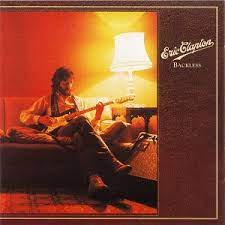
Promises is a standout hit from Eric Clapton’s 1978 album Backless. Written by Richard Feldman and Roger Linn rather than Clapton himself, this lively track showcases a breezy, country-rock influence distinct from his heavier blues work. It became a massive commercial success, reaching the Top 10 on the US Billboard Hot 100.
Lyrically, the song depicts a man earnestly trying to maintain his commitment to a lover, anchored by the hook, "I'll keep my promises." With its infectious, upbeat arrangement and driving guitar rhythm, it remains a beloved pop-rock staple in Clapton's extensive catalog and a frequent highlight of his live performances.
Chords And Strumming
Soon.
Guitar Lesson Details - (chords & lyrics sheet incl with lesson)
Jump To Top
Thorn Tree In The Garden - Learn To Play On Guitar
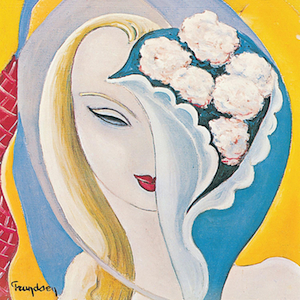
Thorn Tree In The Garden is the hauntingly beautiful closing track of the 1970 Derek and the Dominos masterpiece, Layla and Other Assorted Love Songs.
Written and sung by keyboardist Bobby Whitlock rather than Clapton, the song is a stark, acoustic ballad about a relationship that appears perfect on the surface but hides a painful reality.
Clapton contributes delicate acoustic guitar and Dobro accompaniment, providing a somber, perfect ending to an album fueled by intense emotion and heartbreak. It remains a hidden gem that highlights the collaborative magic of the band.
- Album: Layla and Other Assorted Love Songs
- Year: 1970
- Trivia: The closing track of the Layla album; sung by Bobby Whitlock, not Clapton, but features Clapton's delicate acoustic work.
Chords And Strumming
Soon.
Guitar Lesson Details - (chords & lyrics sheet incl with lesson)
Jump To Top
Watch Out For Lucy - Learn To Play On Guitar
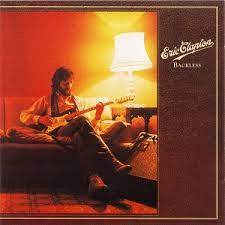
Watch Out for Lucy was recorded for Clapton's 1978 album "Backless." The song was written by J.J. Cale, who was a close friend and frequent collaborator of Clapton's.
"Watch Out for Lucy" is an upbeat blues-rock track that features Clapton's signature guitar work and soulful vocals. The song's lyrics caution the listener about a woman named Lucy who is "mean and reckless" and "can really do you in." Despite the ominous subject matter, the track has a fun, lighthearted feel and features some lively piano work and a catchy chorus.
Clapton put this song on the B-Side of his 1978 single release of "Promises".
- Album: Backless
- Year: 1978
- Chart: #40 (Hot 100).
- Trivia: Features a "Tulsa Time" style rhythm; Clapton plays harmonica on this track.
Chords And Strumming
Soon.
Guitar Lesson Details - (chords & lyrics sheet incl with lesson)
Jump To Top
Wonderful Tonight - Learn To Play On Guitar
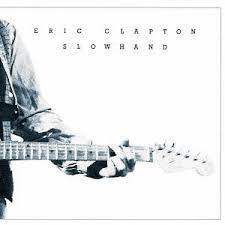
Wonderful Tonight s one of Eric Clapton’s most beloved ballads, appearing on his 1977 album Slowhand. The song was famously written while Clapton was waiting for his then-girlfriend, Pattie Boyd, to get dressed for a Paul McCartney party.
Known for its gentle, romantic melody and signature guitar riff, it has become a global wedding classic. The lyrics capture a simple, intimate moment of admiration.
A massive commercial success, the song demonstrates Clapton's softer side and his ability to craft enduring pop-rock melodies alongside his heavier blues work.
Chords And Strumming
Soon.
Guitar Lesson Details - (chords & lyrics sheet incl with lesson)
SoonJump To Top
Blues Roots & Standards
Before You Accuse Me
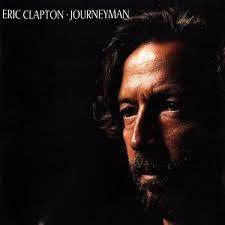
Before You Accuse Me is a 1957 Bo Diddley blues standard that became a standout hit for Eric Clapton on his 1989 album Journeyman. Clapton's rendition features a classic blues-rock arrangement, driven by his signature guitar riffs and a powerful rhythm section.
Achieving Top 40 success on the Billboard Hot 100, it has become an essential staple of his live performances. The lyrics deliver a sharp warning to a lover, urging them to examine their own actions before casting blame.
While legendary acts like Creedence Clearwater Revival and The Animals have also covered the track, Clapton’s version remains a definitive example of his blues mastery.
- Album: Journeyman (Also on Unplugged)
- Year: 1989
- Chart: #9 (Mainstream Rock).
- Trivia: A Bo Diddley cover; it was the B-side to "I Shot The Sheriff" back in 1974 before Clapton re-recorded it.
Chords And Strumming
Soon.
Guitar Lesson Details - (chords & lyrics sheet incl with lesson)
Jump To Top
Further On Up The Road
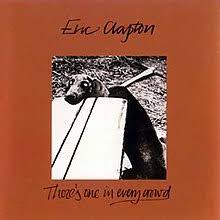
Further On Up The Road is a classic 1957 Texas shuffle originally recorded by Bobby "Blues" Bland. Eric Clapton reimagined the track—tweaking the title from "Farther" to "Further"—for his 1975 album There's One in Every Crowd. It quickly became a high-energy staple of his live repertoire.
Clapton’s rendition transforms the standard into a driving rock anthem, showcasing his fiery guitar solos and soulful vocals. Lyrically, the song uses the road as a metaphor for life’s journey and the endless search for love. With its infectious rhythm and commanding performance, it stands as a definitive example of Clapton’s mastery of the blues-rock genre.
- Album: E.C. Was Here (Live) / Less Than Zero
- Year: 1975
- Trivia: A staple of his live shows; originally a Texas shuffle by Bobby "Blue" Bland.
Chords And Strumming
Soon.
Guitar Lesson Details - (chords & lyrics sheet incl with lesson)
Jump To Top
How Deep Is The Ocean

How Deep Is The Ocean is a timeless 1932 Irving Berlin standard, reimagined by Eric Clapton for his 2010 self-titled album. Stepping away from traditional blues, Clapton delivers a sophisticated, jazz-infused arrangement characterized by smooth vocals and a slow, melodic guitar intro that builds into a rich backing of piano and saxophone.
The lyrics explore the boundless nature of love using the ocean as a metaphor. Clapton’s performance is sensitive and heartfelt, honoring Berlin’s songwriting while showcasing his own versatility as an artist. It is a standout track that demonstrates Clapton's ability to masterfully interpret the Great American Songbook with his signature style.
- Album: Clapton
- Year: 2010
- Trivia: An Irving Berlin jazz standard transformed into a bluesy/jazz number by Clapton.
Chords And Strumming
Soon.
Guitar Lesson Details - (chords & lyrics sheet incl with lesson)
Jump To Top
I Can't Stand It
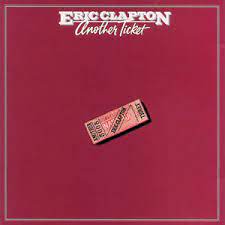
I Can't Stand It is a driving blues-rock anthem written by Eric Clapton for his 1981 album Another Ticket. Showcasing his signature guitar style, the track features a catchy riff and a simple, effective chorus that sets it apart from his more introspective work.
The song is notable for its high energy and upbeat feel, proving Clapton’s ability to craft memorable rock radio hits. Commercially, it was a massive success, soaring to #1 in Israel and on the US Top Rock Tracks chart, while also crossing over to hit #10 on the Billboard Hot 100.
It remains a powerful example of Clapton’s rock songwriting prowess.
- Album: Another Ticket
- Year: 1981
- Chart: #10 (Hot 100), #1 (Mainstream Rock).
- Trivia: The song deals with his frustration over being constantly hounded by the press.
Chords And Strumming
Soon.
Guitar Lesson Details - (chords & lyrics sheet incl with lesson)
Jump To Top
Kindhearted Woman Blues

Kindhearted Woman Blues is a cornerstone of the blues canon, originally recorded by Robert Johnson in 1936 as his very first release. Eric Clapton, a lifelong devotee of Johnson, has performed this slow blues standard throughout his career, including a notable live version on his 1975 album E.C. Was Here.
The song features intricate guitar work that mimics Johnson’s complex Delta style, blending bass lines and melody simultaneously. Lyrically dealing with the complications of love, Clapton’s faithful interpretation serves as a direct tribute to the blues master who shaped his entire musical identity.
- Album: E.C. Was Here (Live)
- Year: 1975
- Trivia: The very first song Robert Johnson ever recorded; Clapton has played it throughout his entire career.
Soon
Chords And Strumming
Soon.
Guitar Lesson Details - (chords & lyrics sheet incl with lesson)
Jump To Top
My Fathers Eyes
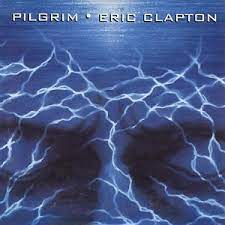
My Father's Eyes is a deeply personal standout from Eric Clapton's 1998 album Pilgrim. Inspired by the fact that Clapton never met his father, the song explores themes of identity, loss, and redemption. Musically, it is driven by a simple yet haunting acoustic riff and lush string arrangements that perfectly complement the melancholy lyrics.
Clapton’s vocal performance is raw and emotional, reflecting on his father's absence and his own life journey. Reaching the Top 20 in the UK and winning a Grammy for Best Male Pop Vocal Performance, it remains a critical success. The track stands as a testament to Clapton's ability to transform personal pain into exquisite musical beauty.
- Album: Pilgrim
- Year: 1998
- Chart: #16 (Adult Contemporary).
- Trivia: Inspired by the fact that Clapton never met his father; he won a Grammy for this vocal performance.
Chords And Strumming
Soon.
Guitar Lesson Details - (chords & lyrics sheet incl with lesson)
Jump To Top
Ramblin On My Mind
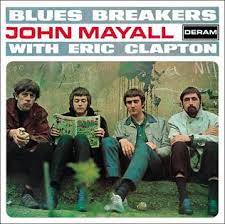
Ramblin' On My Mind is a seminal Robert Johnson blues standard from 1936, famously covered by Eric Clapton on the 1966 album Blues Breakers With Eric Clapton. Historically significant, this track marks Clapton’s very first lead vocal performance on a recording.
The version features a slow, mournful arrangement that perfectly captures the song's melancholy tone and highlights Clapton’s deep connection to the blues. Lyrically, it expresses a profound sense of restlessness and dissatisfaction.
With its sparse, authentic delivery, this track remains a timeless example of Clapton’s early mastery and respect for the Delta blues tradition.
- Album: Blues Breakers with Eric Clapton
- Year: 1966
- Trivia: This was the first song Clapton ever recorded a lead vocal on.
Chords And Strumming
Soon.
Guitar Lesson Details - (chords & lyrics sheet incl with lesson)
Jump To Top
Rockin Chair

Rockin' Chair is a classic 1929 blues standard written by Hoagy Carmichael. Eric Clapton recorded his cover for the 1976 album No Reason to Cry. This slow, bluesy rendition features Clapton’s signature guitar work alongside exceptional piano accompaniment from the legendary Dr. John.
Lyrically, the song reflects on aging and weariness, capturing a mood of resignation with lines like, "I sit here in my rockin' chair, feelin' kind of low and square." While the song has been covered by greats like Louis Armstrong, Clapton’s soulful performance and the track's melancholy melody make this version a memorable standout in his discography.
- Album: Clapton
- Year: 2010
- Trivia: A Hoagy Carmichael classic; Clapton brings a New Orleans jazz vibe to this version.
Chords And Strumming
Soon.
Guitar Lesson Details - (chords & lyrics sheet incl with lesson)
Jump To Top
They're Red Hot
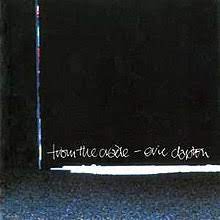
They're Red Hot is a lively 1936 Robert Johnson track covered by Eric Clapton for his 1994 blues tribute album, From The Cradle. Unlike the typical slow blues associated with Johnson, this song features an upbeat, swinging arrangement complete with horns and a catchy resonator guitar riff.
The lyrics describe a street vendor selling "red hot" tamales, and Clapton’s vocal performance captures the song's fun, carefree energy perfectly. It remains a standout track that honors the original's roots. For a special treat, look for the YouTube rehearsal clip of Clapton and the late Billy Preston working in the studio to nail the final take.
- Album: Me and Mr. Johnson
- Year: 2004
- Trivia: Robert Johnson's most uptempo, ragtime-influenced track; very different from his usual dark blues.
Chords And Strumming
Soon.
Guitar Lesson Details - (chords & lyrics sheet incl with lesson)
Jump To Top
If you liked this Eric Clapton page you might also like ... (click images)
Motown Rhythm And Blues
